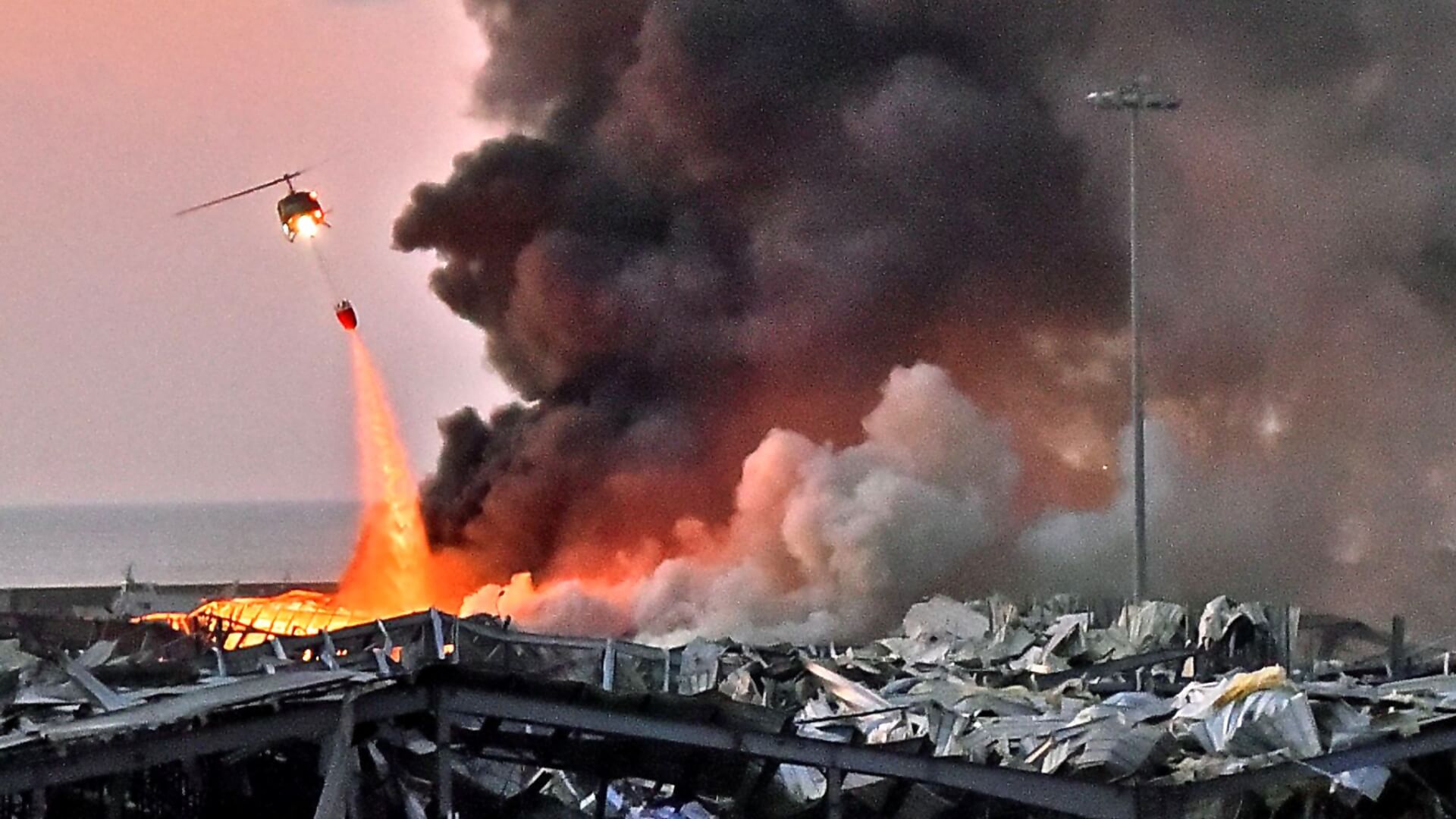Lebanon is in shock and mourning the deaths of in excess of at least 100 people after a massive blast ripped across the city’s port and ravaged its surrounding areas on Tuesday. At least 4,000 people have been reported injured so far, with several others still feared trapped under the debris and rubble. The Port of Beirut, which has been completely destroyed, is Lebanon’s main seaport. It is centrally located between Africa, Asia, and Europe and is one of the busiest ports in the eastern Mediterranean at large.
The country is already facing a severe economic crisis, and the calamity has shaken the city’s medical facilities, which are struggling to keep up with the thousands of casualties pouring in. On Wednesday morning, a Red Cross official confirmed that the death toll had reached 100 as smoke from the port continued to rise. Soldiers have been witnessed clearing the streets of upturned cars and debris from shattered and fallen buildings. Marwan Abboud, the governor of Beirut city, told local radio that more than 100 people have been reported missing, including many firefighters. He said, “Beirut has never gone through what it went through yesterday.”
Officials have linked the cause of the explosion to a warehouse that was reportedly storing 2,750 tonnes of the highly reactive chemical ammonium nitrate, which had been confiscated and was being unsafely stored in a warehouse at the port for the past six years. The chemical is otherwise an odourless substance that often used as fertilizer. Several residents managed to capture the devastation caused by the mushroom cloud blast on camera:
Following the explosion, Lebanese President Michel Aoun called a cabinet meeting of the High Defence Council early on Wednesday and recommended the declaration of a two-week state of emergency, stating that the army should oversee the security in the disaster-stricken city. Prime Minister Hassan Diab declared Wednesday as a day of mourning.
As support and condolences from foreign leaders pour in, Moscow has reportedly announced the deployment of five aircraft carrying a mobile hospital, emergency service troops and medics, and a consumer rights experts with a lab setup for coronavirus diagnosis to aid Beirut in its response to the doubled calamities. Several European leaders took to Twitter to express their support for Lebanon.
My thoughts are with the people of #Lebanon and with the families of the victims of the tragic #BeirutBlast
— Charles Michel (@eucopresident) August 4, 2020
The EU stands ready to provide assistance and support.
Stay strong.
While United States President Donald Trump signalled initially that the blast seemed like an “attack” , his defence officials have contradicted those claims.
Currently, Lebanon is also involved in a conflict with its neighbour Israel in the South. However, the Iran-supported Lebanese Shi’ite outfit Hezbollah has said that it did not believe that Israel was behind the blast, and even the Israeli military has maintained a complete denial of any involvement in the explosion. In fact, Israeli Prime Minister Benjamin Netanyahu has instructed officials to speak with the United Nations Special Coordinator for the Middle East Peace Process to see how Tel Aviv can assist Beirut.
Pursuant to his approval of humanitarian and medical assistance to Lebanon, Prime Minister Netanyahu has instructed NSC head Ben-Shabbat to speak with UN Special Coordinator for the Middle East Peace Process Mladenov in order to clarify how Israel can further assist Lebanon.
— PM of Israel (@IsraeliPM) August 4, 2020

